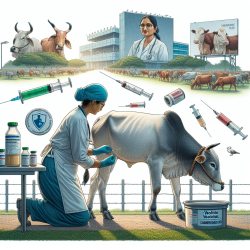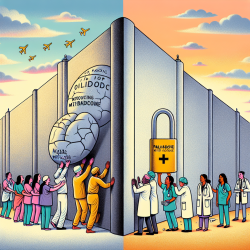In the ever-evolving landscape of livestock health management, infectious diseases like Bovine Tuberculosis (bTB) and Johne’s Disease (JD) pose significant challenges. These diseases not only affect animal health but also have broader implications for human health and food security. The recent research article titled "Driving Adoption and Commercialization of Subunit Vaccines for Bovine Tuberculosis and Johne’s Disease: Policy Choices and Implications for Food Security" sheds light on innovative strategies that could revolutionize how these diseases are managed.
The Role of Subunit Vaccines
Subunit vaccines represent a promising strategy in combating bTB and JD. Unlike traditional vaccines that use whole pathogens, subunit vaccines utilize specific parts of the pathogen to elicit an immune response. This approach minimizes the risk of adverse reactions while providing targeted protection. The research highlights the potential of these vaccines to enhance immunological responses, thereby reducing the incidence of these diseases in livestock populations.
Policy Gaps and Commercialization Challenges
Despite the promising nature of subunit vaccines, their adoption faces several hurdles. One significant barrier is the lack of comprehensive policies that incentivize vaccine adoption among farmers. Current regulatory frameworks often overlook the economic benefits that these vaccines can provide across the supply chain. Additionally, commercialization efforts are hampered by the absence of effective diagnostic tools that can differentiate between vaccinated and infected animals.
The Importance of Public-Private Partnerships (PPPs)
The research underscores the critical role that public-private partnerships can play in overcoming these challenges. By fostering collaboration between government agencies, private companies, and research institutions, PPPs can drive innovation in vaccine development and deployment. These partnerships can also help align incentives across stakeholders, ensuring that the benefits of vaccination are realized throughout the livestock industry.
Implications for Food Security
The successful adoption of subunit vaccines has far-reaching implications for global food security. By reducing disease prevalence in livestock, these vaccines can enhance productivity and ensure a stable supply of animal products. This stability is crucial in meeting the nutritional needs of a growing global population. Furthermore, healthier livestock populations contribute to more sustainable agricultural practices, aligning with broader environmental goals.
Steps for Practitioners
- Stay Informed: Keep abreast of developments in vaccine technology through webinars and conferences.
- Advocate for Policy Change: Engage with policymakers to advocate for supportive regulatory frameworks that incentivize vaccine adoption.
- Collaborate: Partner with other stakeholders in the industry to form alliances that support vaccine research and commercialization efforts.
- Pilot Programs: Consider participating in pilot programs that test the efficacy and economic viability of new vaccines.
The journey towards widespread adoption of subunit vaccines is complex but essential. By addressing policy gaps and fostering collaboration through PPPs, we can pave the way for a healthier future for both livestock and humans.
To read the original research paper, please follow this link: Driving Adoption and Commercialization of Subunit Vaccines for Bovine Tuberculosis and Johne’s Disease: Policy Choices and Implications for Food Security.










